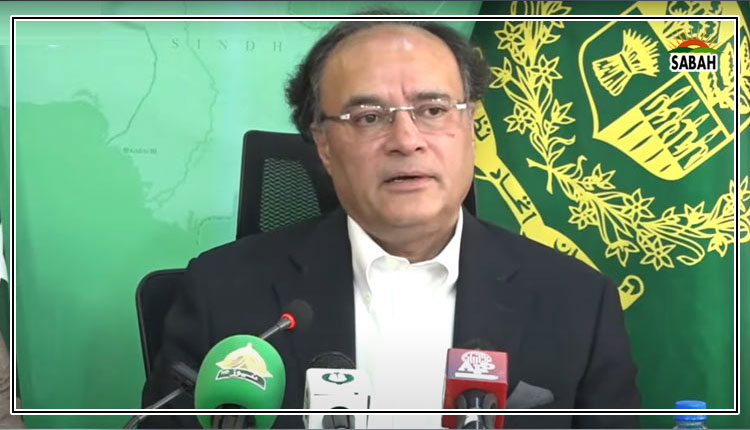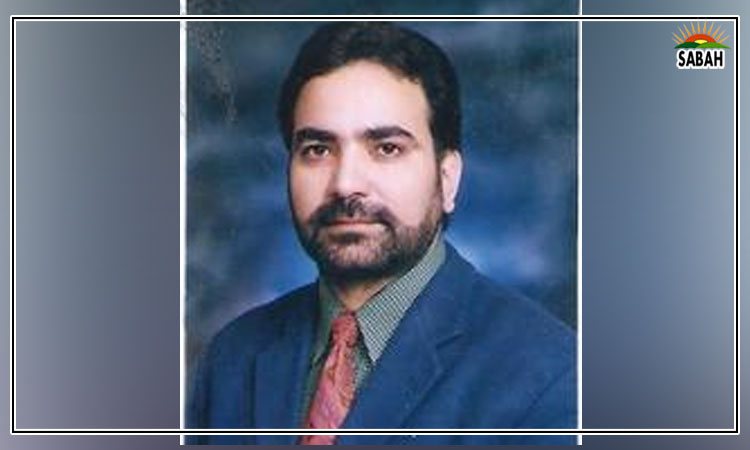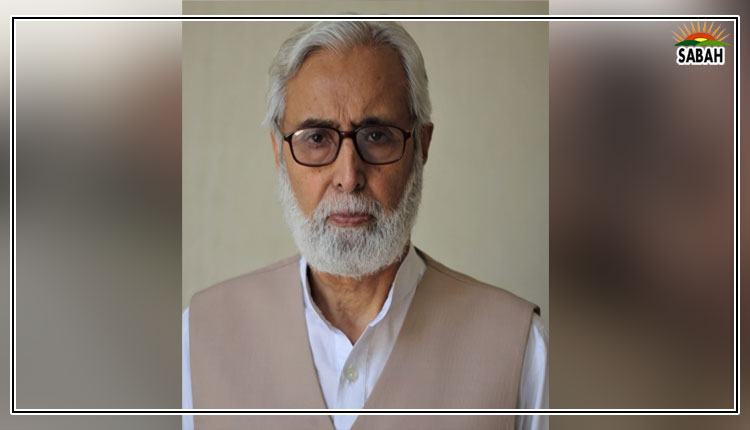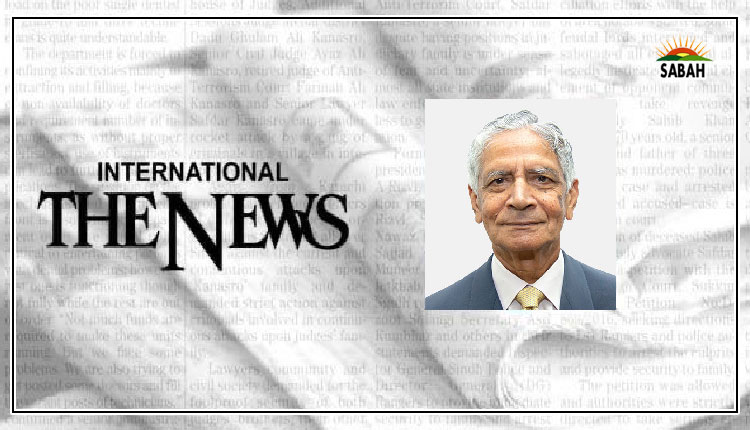Does America know the world? …..Touqir Hussain
It is election season in America. And for politicians, it is time to talk policy. Anyone who watched the TV debate between Donald Trump and President Biden on June 27 or heard campaign speeches and media interviews on both sides so far must have been shocked to see how perfunctory, disingenuous and rigid the conversations about foreign policy issues have been.
There are many reasons for that: misinformed public opinion, politics of issues and elite interests, all of which form perceptions and policies on foreign relations. But there is also one little-talked-about reason. The US does not understand the world. And does not seem to care.
Americans’ historical experience and rich and self-contained existence that makes them dependent on no other power has made them self-centred, sometimes arrogant, and often overbearing, and thus unable to cross cultural barriers and understand the substance of other societies. These feelings of superiority and a sacrosanct self-image of an indispensable, exceptional and saviour nation especially since the victory in the Second World War and subsequent rise as the greatest economic and military power, have led to a feeling that they do not need to understand other societies.
The US has moved from a colony to a superpower without having been fully engaged with the outside world because of its long-lasting isolationist posture. And when it finally did start relating to the world beyond its shores it was already a major power having the pretensions and the potential to be a superpower. That means never in its history has the US related to other countries as an equal. It related to an overwhelming military and economic strength and always felt a certain superiority either of national power or of moral purposes.
For much of the 20th century beginning with the First World War, the US – commanding an immense array of diplomatic, economic, and political assets and military power – had played a decisive role in international affairs maintaining some semblance of balance of power, stability and international order. But it soon led to a feeling that since America was doing so much public good, its interests, world view, and strategies should be beyond challenge.
Because of their overweening pride in their uniqueness, military and economic power, advanced democracy and political institutions, power of innovation, and a strong sense of liberty and individualism, Americans have come to believe that their system, their values and their way of thinking are not only the best but the only good way of doing things. The only terms of reference they can see the outside world from are their own. And they feel morally justified in trying to convert others to their point of view. In fact, they feel their way is so good it does not even need explaining.
As an exceptional nation, the US demanded exceptional treatment. Its hegemonic worldview of the cold-war years was followed by a super-size global role after the end of the cold war, aggravating its traditional militarism that led to many errors of judgment – first the so-called liberal interventionism of the Clinton years that led to Nato’s expansion which provoked Putin’s Ukraine war, and then the post-9/11 wars. Driven by a supreme consciousness of power and the hubris of the unipolar moment, and then scarred by 9/11, the US simplified and distorted the emerging global challenges and resorted to unilateralism. The result was the failed wars in Afghanistan and the Middle East.
The US does not realize how much influence it would have had in the Middle East and the larger Muslim world had it not appended itself to Israeli expansionism. Seventy-five years of massive US military aid and financial assistance has been the bedrock of Israel’s national power. America’s absolute political support, especially its willful advocacy at the UN, has shielded Israel from punishment for its wrongs, inciting more offences and more US support. Why should the US not be considered complicit in Israel’s inhumanity in Gaza? But Washington does not understand that.
The average American does not know much about foreign affairs. His/her worldview is very simplistic. Most Americans have no concept of history and culture except their own. That is the voting public whose opinions matter in the elections. And that is the opinion that largely forms foreign policy, especially on issues of high public interest like security, terrorism, immigration, religious extremism, globalization, jobs etc. Not to mention the elites’ obsession with America’s global leadership role which also was a factor.
But neither the public nor the elites understand that many of the issues their government has gone to war for with public support, often expressed through the US Congress, are not susceptible to resolution by force of arms. Harman Ulman in his remarkable book ‘Anatomy of Failure’ says that after the Second World War, the US lost every war that was started by it. For Ulman, the reason is the complicated public policy process and the electoral politics.
Many of the wars were wars of choice but not necessity. There was no effort to ascertain if there was a necessity. The wars were incited by an overweening pride in its military power and prompted by domestic political interest groups, as explained in Jack Snyder’s book ‘Myths of Empire: Domestic Politics and International Ambition’. Given Americans’ own historical experience, going to war comes naturally to them. Though sometimes a force for good, it has often disguised imperialist aims.
Washington never realized that when going to war, especially involving fragile or fractured societies facing identity and religious issues, poor governance, power imbalances, security threats and state and nation-building challenges, you need to understand their internal dynamics. Otherwise, you are programmed to fail.
Even developing countries at peace with the US and having close allied relations with Washington were not well understood by the US. The US had tended to see these societies through the eyes of the dictators who were supporting the US. And ironically often the so-called democracy promotion campaign was a tactic to extend the lease of the political life of the dictators when they became very unpopular.
The US and UK through their joint initiative struck a deal between Musharraf and Benazir for her return to power through elections. This would provide a civilian facade to Musharraf in the hope he would continue to do Washington’s bidding. The Americans had no idea how unpopular he had become – and he soon lost power. In Egypt, they asked Mubarak to ease up the electoral process which would look credible enough but still be susceptible to manipulation so that he could maneuver to win but gain legitimacy. In the event, despite the US State Department’s projection that he would win, Mubarak lost.
The Shah of Iran was asked by Jimmy Carter to ease human rights in the hope he would become less unpopular. But little did the US realize that the freedoms that would come with it would be used by the opposition to throw him out.
To be fair to America, it has done well in meeting the challenges that have been entirely military (like winning the two world wars) or purely economic and financial (like setting up international financial institutions and creating some semblance of a badly needed international order after the Second World War). It has also been successful in the containment of big military and economic powers like it did with the Soviet Union and later Russia. Lastly, it has performed remarkably well in purely humanitarian challenges. Look at its admirable international efforts whether in Tsunami or Haiti or Pakistan’s earthquake in 2005 and then floods in 2010.
The US role is still critical to the stability of the international order, but Washington must try to understand the world and the history-making changes that have taken place to play that role effectively.
The writer, a former ambassador, is adjunct professor at Georgetown University and visiting senior research fellow at the National University of Singapore.
Courtesy The News












